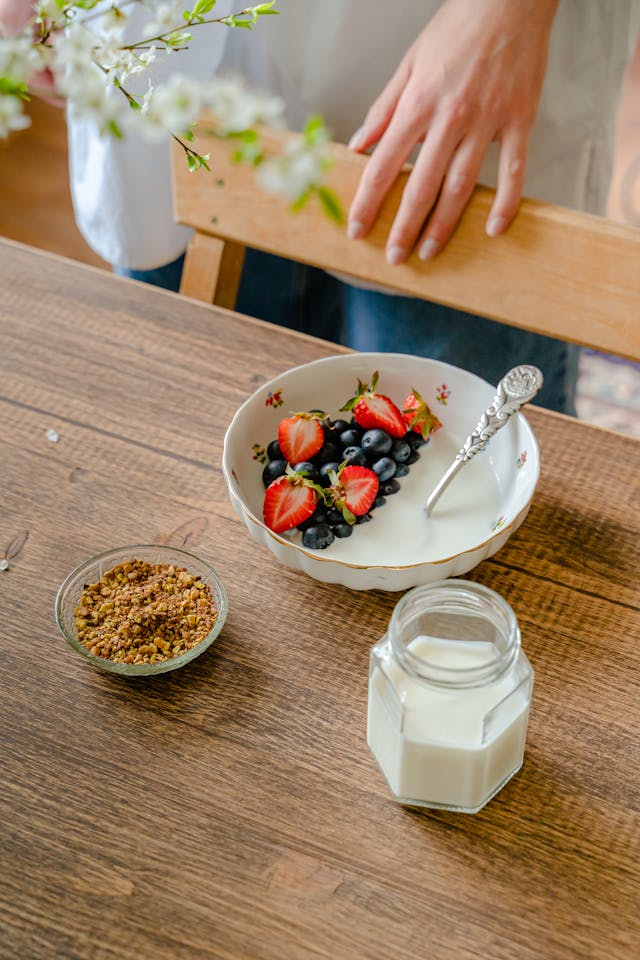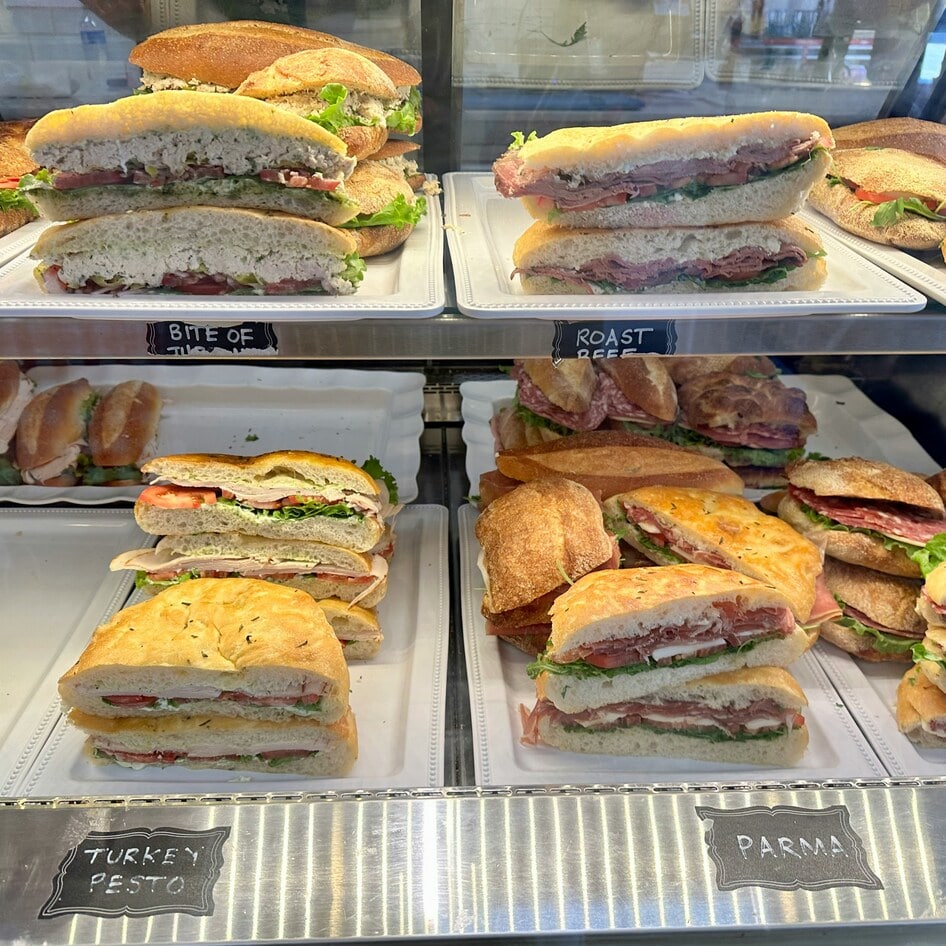It’s hard to avoid ultra-processed foods (UPFs). From bread to candy, potato chips, and canned and frozen products, they are everywhere. So it’s no surprise that most people eat them most of the time. In fact, research suggests that UPFs make up around 60 percent of the average person’s diet in the US.
However, experts have warned that relying excessively on UPFs could be hurting our health. They have been linked to an increased risk of everything from cancer to stroke to cognitive decline.
An abundance of research suggests that, instead of UPFs, we should be trying to get more minimally processed, whole foods in our diet, like those who live in the Blue Zones (five longevity hotspots around the world) and the Mediterranean. Earlier this year, US News & World Report labeled the Mediterranean diet as the healthiest way to eat for the eighth year in a row, largely because of its emphasis on nutrient-dense whole foods, like beans, nuts, fruits, vegetables, and whole grains.
However, many experts also stress it’s important to find a balance. It turns out, avoiding UPFs completely, or developing a phobia, also isn’t that healthy.
Are all UPFs bad for you?
Concerns about UPFs are valid. Recent studies have linked UPFs to premature aging and intramuscular fat in thigh muscles, which can increase the risk of osteoarthritis. In April 2025, another study suggested that high consumption of UPFs could increase the risk of premature death. In fact, the research found that for every 10 percent increase in the dietary share of ultra-processed foods, the risk of death increases by three percent. Overall, UPFs have been linked to about 32 diseases.
“Policies that disincentivize the consumption of ultra-processed foods are urgently needed globally, promoting traditional dietary patterns based on local fresh and minimally processed foods,” said Eduardo Augusto Fernandes Nilson, DSc, of the Oswaldo Cruz Foundation (Fiocruz) in Brazil.
No doubt, choosing whole foods is associated with better health outcomes. But the issue is nuanced.
In 2024, two UK scientists released a paper in the journal Plos Medicine urging policymakers to find perspective on the topic of UPFs. Alexandra Johnstone, PhD, of the Rowett Institute of Nutrition and Health at the University of Aberdeen, and Eric Robinson PhD, of the University of Liverpool, expressed concern that urging everyone to avoid UPFs at all costs might be doing more harm than good.
They stressed that while many UPFs are unhealthy because they’re high in salt, refined sugar, and saturated fat, plenty do offer some nutritional value. UPFs also play a vital role in providing many people with convenient, affordable sustenance, they added.
 Pexels
Pexels
“Foods classed as ultra-processed, which are high in fat, salt and/or sugar should be avoided, but a number of ultra-processed foods are not,” said Robinson in a statement. “We should be thinking very carefully about what advice is being given to the public, as opposed to providing simplified and potentially misleading messages that grab headlines.”
What does UPF actually mean?
UPF is a broad category, covering any food with extensive ingredients—usually more than five. This can mean anything from frozen fries high in saturated fat and salt, to peanut butter, which contains salt and fat but also protein, fiber, and healthy fats. Even baked beans and whole wheat bread fall under UPFs but provide important nutrients like fiber and vitamins.
A study backed by the World Health Organization (WHO) and published in 2023 argued that this category is too broad. The health risk from fiber-rich bread is not the same as processed meats or sugary sodas. (Processed meat is classified as a group one carcinogen by the WHO.)
“Our study emphasizes that it is not necessary to completely avoid ultra-processed foods; rather, their consumption should be limited, and preference should be given to fresh or minimally processed foods,” said WHO scientist Heinz Freisling, per The Guardian.
More recently, nutrition app Zoe announced it had launched a UPF risk scale to help people make more informed decisions around their food choices. Founder Tim Spector previously told VegNews that the classification systems are too simplistic, and different foods get lumped together when they shouldn’t be. On Zoe’s nutrition scale, for example, Dave’s Killer Bread scores low in risk because it’s made with whole grains and seeds, while Lucky Charms cereal scores high because it’s packed with sugar and artificial colors.
“Ultimately, this is about empowering people with better information, not judgment,” Spector said. “It’s not about restriction—it’s about choice, grounded in science.”
 Pexels
Pexels
BECOME A VEGNEWS VIP: Get exclusive product deals, freebies, and perks galore!
Finding a healthy balance with UPFs
Sapna Peruvemba, MS, RDN of Health by Sapna, agrees that the conversation around UPFs requires some nuance.
“Believe it or not, some UPFs can actually play a role in a well-balanced diet,” she told VegNews. “Many fortified plant milks and yogurts fall into this category—they’re often enriched with nutrients like calcium, vitamin D, and B vitamins.”
“Similarly, some fortified cereals offer fiber, iron, and essential B vitamins,” she added. “Then there are foods that technically count as UPFs because of an ingredient or two but still bring nutritional benefits to the table. Think store-bought hummus, whole grain bread, or certain plant-based protein bars or powders.”
The trick is to find a balance. Try to make your whole foods, like greens, beans, and fruits, the center of your diet, but don’t be afraid of relying on ultra-processed foods that are more nutritious if you need to.
“It seems like everywhere you turn, someone is shouting, ‘Stay away from processed foods!’—and it’s understandable why. The fear of anything that’s been ‘altered’ from its natural state has taken over the wellness world,” Peruvemba says.
“The ones to watch out for are those calorie-heavy, nutrient-light snack foods that leave you hungry for more,” notes Peruvemba. “Chips, candy, soda—you know the drill. Even some frozen meals, cereals, and vegan meats can be culprits, often packed with added sugars, sodium, and unhealthy fats.”
However, it’s also important to remember that food isn’t just about health or nutrition. We eat for many reasons, including joy, comfort, nostalgia, connection, and relaxation. With that in mind, Peruvemba says that eating potato chips or your favorite candy bar, both of which are technically UPFs, isn’t going to do you much harm—in moderation, of course.
“Sometimes we just want a treat,” she says. “The key is to indulge mindfully.”
For more plant-based stories like this, read:
JUMP TO ... Latest News | Recipes | Guides | Health | Subscribe









